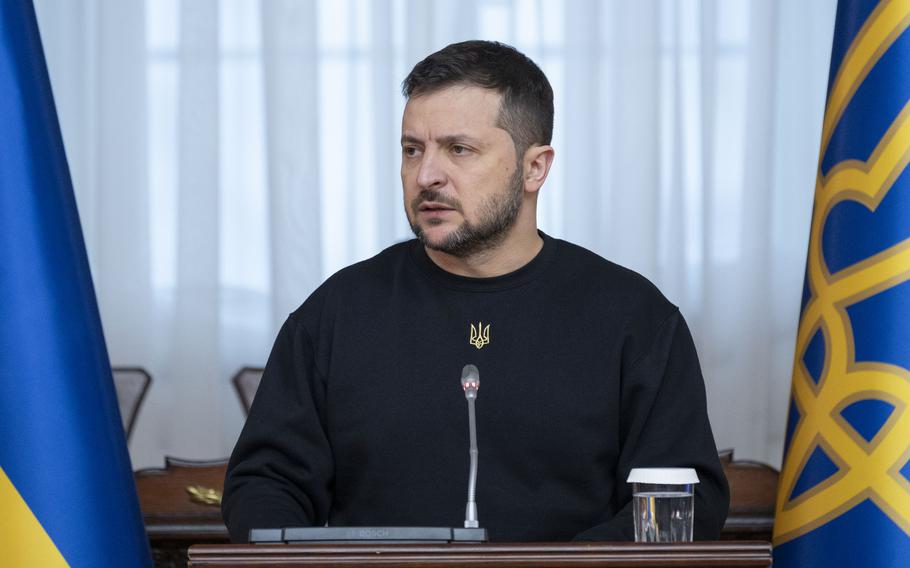The Russian government is supporting operations that impersonate international media outlets as part of its disinformation campaigns, which have become more sophisticated and active since its invasion of Ukraine, according to a European Union study.
Print and TV media are the most frequent targets of Moscow’s impersonation, with magazines seeing their entire style copied by Russian actors to give legitimacy to the content, in particular when targeting Ukraine, said a report on foreign information manipulation published Tuesday by the E.U.’s External Action Service.
The study cited four incidents where fake cover pages imitating the visual style of European satirical magazines were created to attack Ukraine and President Volodymyr Zelenskyy. Two videos imitated Al Jazeera and Euronews, claiming that Ukrainian football fans were detained in Doha because of Nazi behavior during the World Cup, and that a German auction house was going to destroy Russian artworks. The content was rapidly picked up and amplified by channels attributed to Russian state-linked outlets, the report said.
“This war is not only conducted on the battlefield by the soldiers, it is waged in the information space trying to win the hearts and minds of the people,” EU foreign policy chief Josep Borrell said in a speech Tuesday. “We have plenty of evidence that Russia is behind coordinated attempts to manipulate public debates in open societies.”
The EU is struggling to counter Russian disinformation efforts, which officials have said is aimed at undermining the bloc’s unity in supporting Ukraine. As part of its efforts, the EU required major social media platforms to prepare reports on their efforts to comply with the bloc’s new code on disinformation, which will be released Thursday. Several commissioners in Brussels have been particularly critical of Twitter Inc’s new owner Elon Musk.
“I am concerned about the fact that Twitter fired a vast amount of staff in Europe, I understand also those who deal with disinformation,” European Commission Vice President Vera Jourova said in prepared remarks Tuesday. “If you want to effectively detect and take action against disinformation and propaganda, this requires resources. Especially in the context of Russian disinformation warfare.”
In the study released Tuesday, the E.U. agency analyzed a sample of 100 information manipulation cases between October and December. With 60 cases linked to the Russian invasion of Ukraine, Moscow’s aim is to distract audiences, deflect blame or direct attention to different topics, the report found.
Borrell likened the current actors behind information manipulation to Joseph Goebbels, Adolf Hitler’s chief propagandist, but with a lot more powerful capacity of multiplying lies at the “speed of light, reaching everyone everywhere.”
The report also found that Russian diplomatic channels are an integral part of information manipulation incidents, while China also uses diplomatic channels, mostly targeting the US.
The sample data set also indicates that there is some cooperation between Russian and Chinese information manipulation efforts. In one example, manipulation seen in Chinese networks, amplified by Chinese diplomatic accounts and state-controlled channels, traveled to Russian networks for reuse and redistribution. Chinese state outlets and diplomats, meanwhile, amplified material that originated from the Russian information manipulation ecosystem.

Ukrainian President Volodymyr Zelenskyy took part in the solemn meeting of the Plenum of the Supreme Court on Dec. 15, 2022. (Ukrainian Presidential Press Office)